What’s the latest list of musical instruments suitable for beginners?
Embarking on a musical journey can bring a multitude of benefits, including enhanced creativity, emotional expression, and a deeper appreciation for the wide spectrum of music across cultures. Selecting an instrument to commence this journey is pivotal, and fortunately, there are numerous options suitable for beginners. This guide delves into the top 10 musical instruments for beginners, considering aspects such as the ease of learning, affordability, and the availability of learning resources.
1. Ukulele
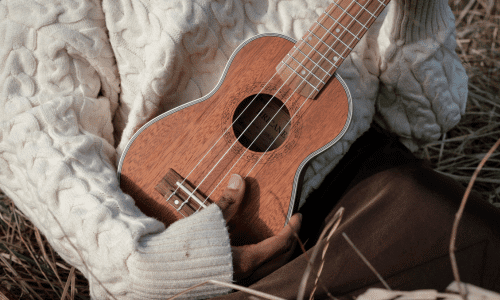
The ukulele has become widely acknowledged as a beginner-friendly string instrument due to its compact size, lightweight nature, and pleasant, harmonious sound. Its four strings, as opposed to the six or twelve encountered on guitars, make it simpler to learn and play, offering a gentle introduction to string instruments. Whether strumming simple chords or plucking melodies, the ukulele provides immediate gratification while still offering room for continuous learning and mastery.
2. Recorder
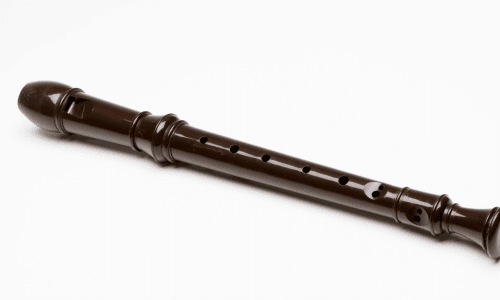
The recorder, a woodwind instrument, is known for its straightforward playability and is often the first instrument taught in schools. It enables beginners to grasp the basics of breath control, finger placement, and note production without the complexity of larger wind instruments. The recorder serves as an excellent foundation for transitioning to other woodwind instruments like the flute or clarinet.
3. Piano

Pianos, with their linear configuration of keys and immediate tactile feedback, offer a logical and intuitive way to understand musical scales and theory. The capability to produce melodious sounds from the outset allows beginners to engage with the instrument and motivates continued learning. Furthermore, understanding the piano can serve as a comprehensive foundation for exploring numerous other instruments.
4. Guitar

Guitars, celebrated for their versatility across various music genres, are popular among beginners. Acoustic guitars are typically recommended for beginners due to their simplicity and the direct feedback they provide to players. Electric guitars, while also a viable option, involve understanding additional equipment like amplifiers and pedals.
5. Violin
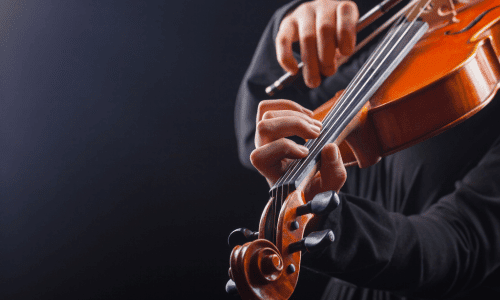
Despite being known for requiring precision, the violin offers a rich, fulfilling learning experience. Beginners learning the violin develop a keen ear for pitches and acquire a fundamental understanding of string instruments that can be applied to others like the cello or viola.
6. Drums

Drums help beginners understand rhythm and coordination. The physicality of drumming also makes it a lively and engaging instrument to learn, providing both a musical and physical outlet. Moreover, learning to keep time and understanding complex rhythm patterns are valuable skills that enhance the understanding of music structure and composition.
7. Harmonica
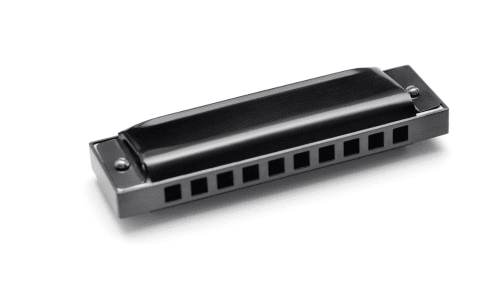
The harmonica is notable for its portability and is relatively easy to pick up, making it a fantastic choice for beginners. It is utilized across various music genres, including blues, rock, and folk, providing a wide array of exploratory options for new learners.
8. Tambourine
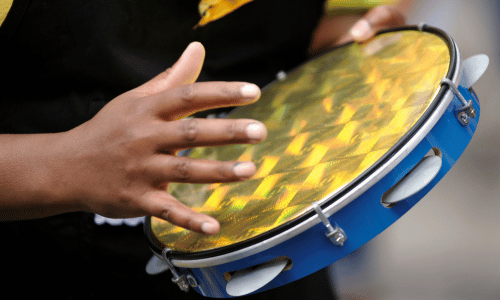
The tambourine, while seemingly simple, offers a delightful introduction to rhythm and percussion. It is commonly used across numerous musical genres and can be played alongside other instruments, thereby enhancing ensemble performance skills.
9. Bongos
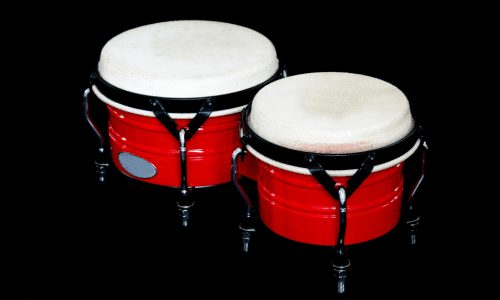
Bongos, with their dual-drum design, introduce beginners to basic percussive skills without overwhelming them with complexity. They are affordable, portable, and can be played in various settings, from casual gatherings to musical performances.
10. Flute

The flute, with its mellifluous and enchanting sound, can be a joy to learn. Despite having a somewhat steep initial learning curve, especially regarding breath control and embouchure (mouth position), the flute can produce beautiful melodies that inspire continual learning.
Embarking on a musical journey by choosing an instrument is a deeply personal and profoundly rewarding experience. The above instruments are celebrated for their accessibility to beginners and provide a solid foundation from which one can delve deeper into the vast world of music. Whether it’s the mellow strums of a ukulele, the resonant chords of a piano, or the rhythmic beats of bongos, each instrument opens up a universe of sound, learning, and expression.
No matter the instrument chosen, the journey into music is one of lifelong learning and enjoyment. May the melodies you create bring joy to yourself and others, and may your musical adventure be richly fulfilling.
We’ve reached the end of our Top 10 countdown, and we’d love to hear from you! Do you agree with our choices, or is there something we missed that you feel deserves a spot on this list? Let’s start a conversation – comment below with your thoughts and ideas. Your input might just influence our next Top 10!
If you like this you might like The Top 10 Best Websites for Learning New Skills and Expanding Your Knowledge





